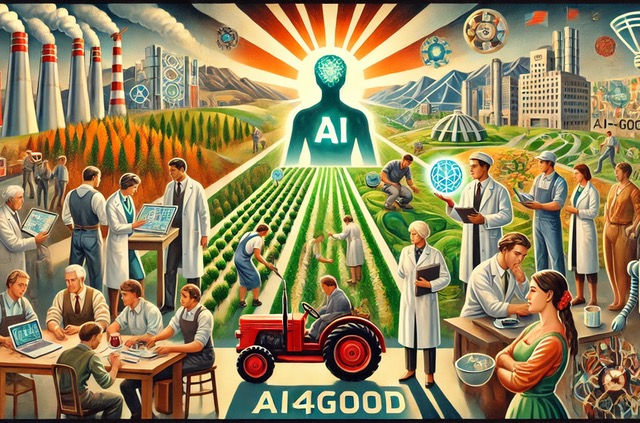AI Boosts Wages and Jobs, Defying Doomsday Predictions: PwC Study
- Gator

- Jun 10, 2025
- 1 min read

Introduction
As artificial intelligence (AI) reshapes industries worldwide, debates about its impact on employment have intensified, with some predicting mass job losses and societal upheaval. However, a comprehensive study by PricewaterhouseCoopers (PwC) offers a counter-narrative, suggesting AI is not a job-killer but a catalyst for higher wages and new opportunities. Published on June 5, 2025, the PwC 2025 Global AI Jobs Barometer challenges dire forecasts by highlighting how AI-exposed industries are driving revenue growth and boosting worker pay. Amid sensational claims of AI-driven population collapse, this report paints an optimistic picture of a workforce enhanced, not replaced, by intelligent technology.
Debunking the AI Job Apocalypse
Pundits like Subhash Kak, a computer science professor at Oklahoma State University, have fueled fears of an “AI job-ocalypse,” predicting that automation will slash jobs, reduce birth rates, and shrink the global population from 8 billion to 100 million by 2300. Such claims, amplified by outlets like The Sun and New York Post, argue that jobless families will struggle to afford children, leading to societal collapse. Similarly, Anthropic CEO Dario Amodei has warned that AI could eliminate half of entry-level white-collar jobs within five years, with unemployment potentially spiking to 10-20%. Yet, PwC’s analysis of 1 billion job ads across six continents counters these narratives, finding that AI enhances worker productivity, making them more valuable to employers rather than obsolete.
AI Drives Productivity and Pay Increases
PwC’s report reveals that industries leveraging AI, such as healthcare and finance, are seeing remarkable gains. Workers in AI-exposed sectors generate three times the revenue per employee compared to less-affected industries like construction or real estate. This productivity boost translates to higher wages, with AI-skilled workers earning up to 56% more in 2024 than those without AI expertise, up from a 25% premium the previous year. For example, healthcare AI startups, backed by $4.2 billion in investments, are using AI to analyze medical imaging and develop drugs, enhancing worker efficiency. Finance, with $2.1 billion in AI investments, employs AI for fraud detection and trading, further driving value. These trends suggest AI is creating a premium for skilled workers, not displacing them.
Industries Most Transformed by AI
Healthcare leads the AI revolution, with applications like X-ray analysis and drug development streamlining complex tasks. Finance follows, using AI for automated trading and risk management, while marketing, legal services, and education also see significant AI adoption. In contrast, industries like construction and agriculture lag due to the physical nature of their work, though advancements in robotics, such as Physical Intelligence’s π0.5 model for household tasks, hint at future disruption. PwC’s findings indicate that even highly automatable roles, like coding or data entry, are seeing job growth and wage increases, as AI augments human capabilities rather than replacing them entirely.
Challenges and the Need for Upskilling
Despite the optimism, challenges remain. A 2024 PwC survey noted that 25% of CEOs plan to cut at least 5% of their workforce due to AI, though many offset these cuts by hiring in other areas. The rising demand for AI skills—now required in 2% of global job ads—underscores the need for upskilling. Workers without AI expertise risk falling behind, particularly in fields like finance and computer science, where unemployment among recent graduates has climbed to 5.8%. Posts on X highlight this urgency, with users like @VanRijmenam emphasizing that “upskilling or get left behind” is the new reality. Governments and companies must invest in training to ensure workers can harness AI’s potential.
Conclusion
Far from heralding a dystopian future, AI is proving to be a boon for workers, driving productivity, wages, and job creation in AI-exposed industries. PwC’s data challenges alarmist predictions, showing that workers with AI skills are commanding significant pay premiums while contributing to robust revenue growth. However, the transition requires proactive upskilling to bridge the gap between traditional roles and AI-enhanced jobs. As industries like healthcare and finance lead the charge, the message is clear: AI isn’t here to take jobs but to redefine them, offering a path to prosperity for those ready to adapt. The future of work looks promising, provided society invests in the skills to match AI’s transformative power.





Comments